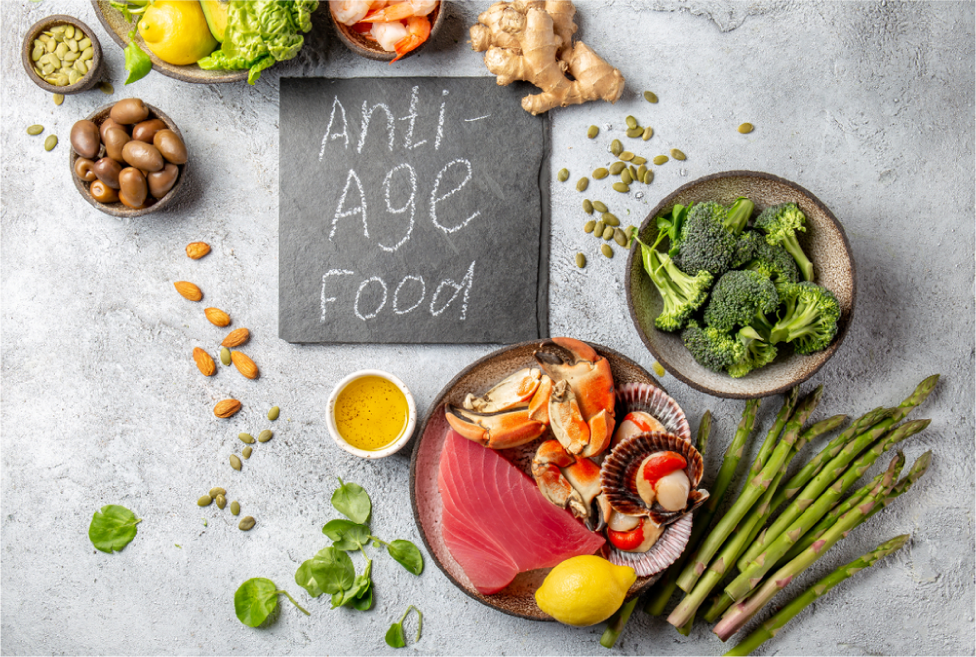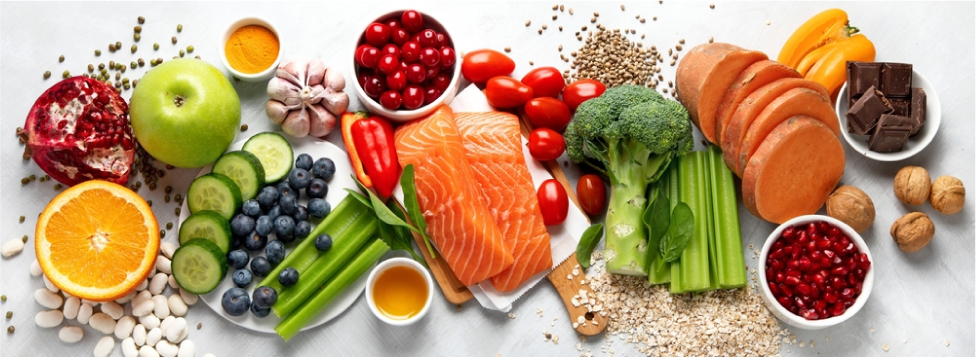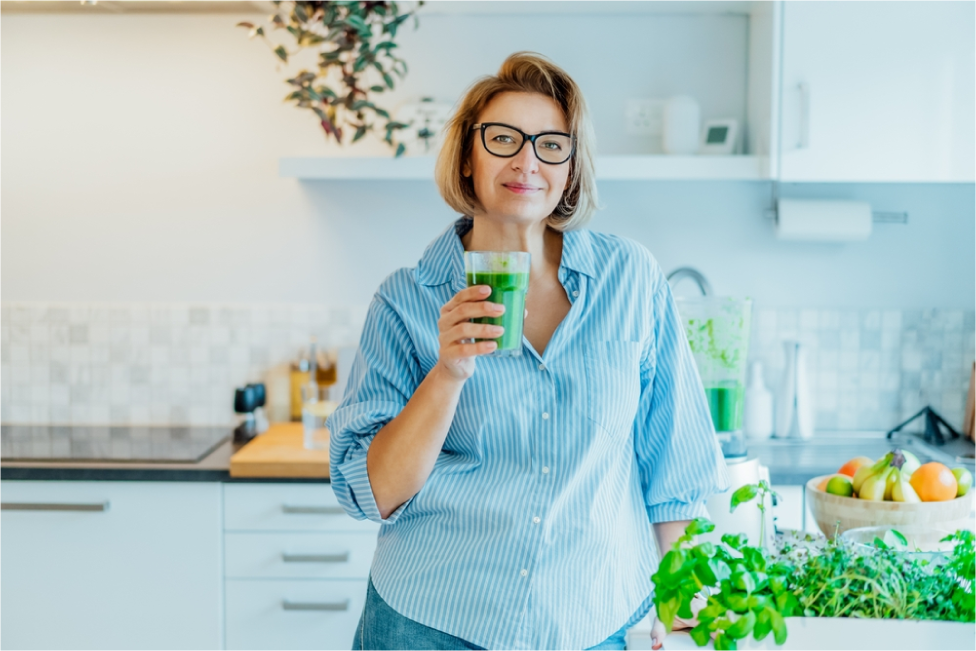
Longevity may be less about genetic destiny and more about lifestyle choice, with studies indicating that genetics account for just 25% of the factors that determine lifespan. The rest is influenced by our diet and how we live. A diet abundant in antioxidants can slash chronic disease risks by up to 20%, while consistent physical activity might cut the risk of premature death by nearly a third.
This guide examines the interplay between diet, daily habits, and aging. We’ll uncover how nutritious eating, physical activity, and mental wellness contribute to longevity, emphasizing the importance of anti-aging nutrition and the impact of lifestyle on aging.

Nutritional Foundations for Longevity
Nutrition is a cornerstone in the pursuit of a long and healthy life. The foods we consume are the building blocks for new cells and play a pivotal role in the quality of our cellular regeneration. Here’s how a well-balanced diet supports anti-aging nutrition:
- Anti-inflammatory Foods: Incorporating foods like leafy greens, fatty fish, nuts, and seeds into your diet can help reduce chronic inflammation, a key factor in lifestyle and aging and many degenerative diseases.
- Antioxidants: Consuming antioxidant-rich foods such as berries, dark chocolate, and red wine helps to neutralize free radicals, shielding our cells from oxidative stress and delaying the aging process.
- Macro and Micronutrients: A balanced intake of macronutrients provides the necessary energy for our daily functions, while micronutrients support critical cellular functions, including DNA repair and maintenance.
- The Mediterranean Diet: Embracing the Mediterranean diet, known for its rich variety of nutrients, has been linked to longer lifespans and a decrease in age-related illnesses.

Lifestyle and Its Effects on Aging
Lifestyle is the canvas on which our aging story is painted. The daily choices we make can either contribute to premature aging or help us maintain our youthfulness. Here are key lifestyle factors that have a significant impact on how we age:
- Physical Activity: Regular physical activity, such as walking, cycling, and sports, is proven to help prevent and manage noncommunicable diseases such as heart disease, stroke, diabetes, and several cancers, and it also helps prevent hypertension, maintain healthy body weight, and can improve mental health, quality of life, and well-being.
- Quality Sleep: Aim for 7-9 hours of quality sleep per night to facilitate cellular repair and memory consolidation.
- Stress Management: Chronic stress accelerates cellular aging; managing stress through techniques such as deep breathing, progressive muscle relaxation, and mindfulness is crucial for longevity.
- Social Connections: Maintaining strong social ties has been linked to longer lifespans and better mental health.

Mind-Body Connection in Anti-Aging
characterized by low stress levels and a positive outlook, can lead to better physical health outcomes.
Cognitive function, too, is preserved through mental stimulation and social engagement. Practices like mindfulness and meditation have been shown to lower blood pressure, reduce chronic pain, and even alter gene expression in ways that may be associated with improved aging.
Environmental Influences on Aging
The environment around us is a silent partner in our lifestyle and aging process. From the air we breathe to the water we drink, environmental factors can either nourish or damage our cells. Here’s how our surroundings affect our aging and what we can do about it:
Sun Exposure
Ultraviolet (UV) rays can cause skin damage and accelerate the appearance of aging.
- Use broad-spectrum sunscreen, wear protective clothing, and seek shade during peak sun hours.
- Balance sun protection with getting enough sunlight to maintain vitamin D levels, crucial for bone health.
Pollution and Toxins
Air pollution can lead to oxidative stress, which damages cells and accelerates aging.
- Minimize exposure to polluted environments and consider air-purifying plants or filters in your home.
- Regularly detoxify your body through diets rich in antioxidants and consider periodic fasting.
Water Quality
Contaminants in water can contribute to cellular damage over time.
- Use water filters to reduce exposure to potential toxins like heavy metals and chlorine.
- Stay hydrated to support kidney function and toxin removal.
Household Chemicals
Common household cleaners and personal care products may contain endocrine disruptors that affect aging.
- Opt for natural or eco-friendly products to reduce chemical exposure in your home environment.
- Regularly ventilate your living spaces to reduce the accumulation of potentially harmful airborne chemicals.

The Future of Anti-Aging
The frontier of anti-aging is ever-expanding, with new research shedding light on the role of genetics and the potential of personalized medicine. The future may hold targeted therapies that can slow the aging process at the molecular level. Expand your understanding with our in-depth guide on anti-aging treatments and well-being.
Avanti Restore’s Unique Approach to Anti-Aging
Avanti Restore stands at the forefront of integrating these principles into a comprehensive approach to wellness. With personalized programs and advanced therapies, Avanti Restore offers a sanctuary for those seeking to age with vitality and grace.
Embark on your journey towards a more youthful tomorrow with Avanti Restore. Contact us to discover how our personalized approach to anti-aging can benefit you.
